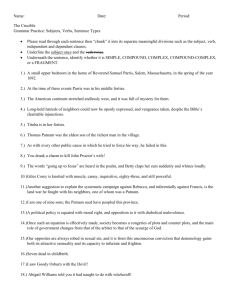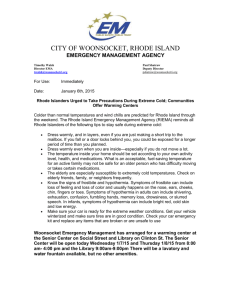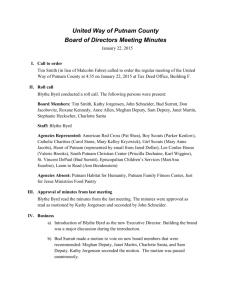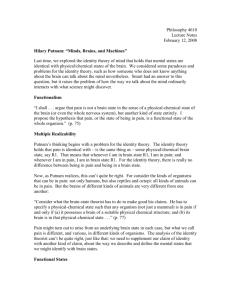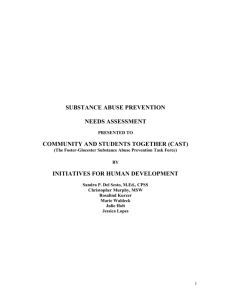"Jocktan Putnam`s Cows": An Agrarian Rebellion - Drabold
advertisement
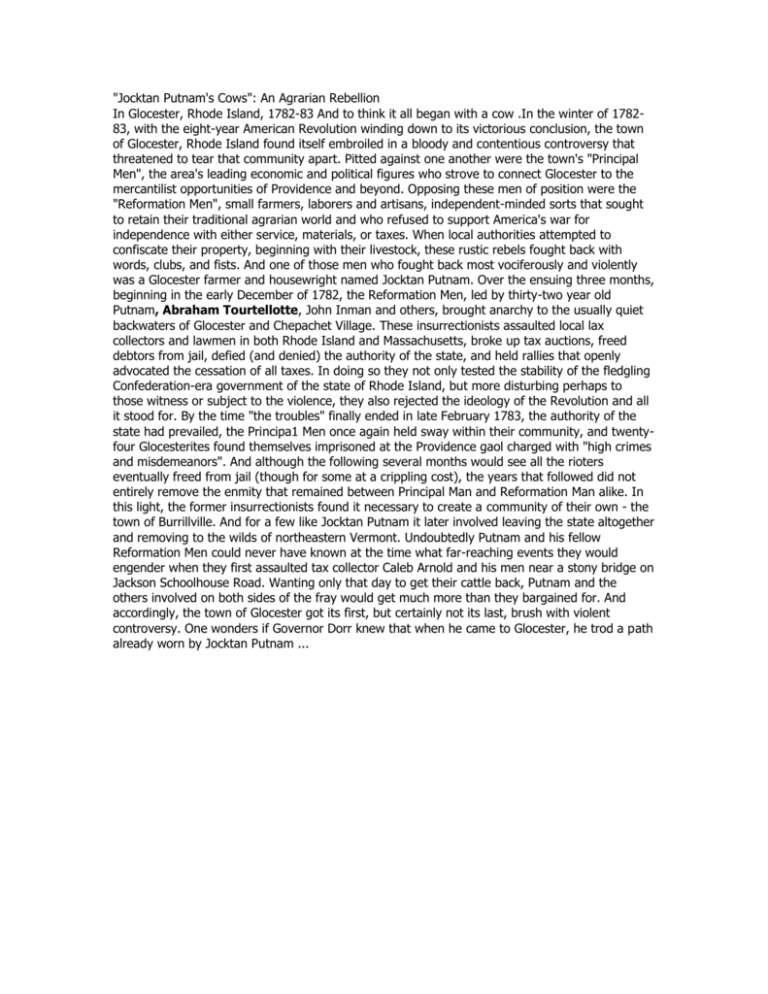
"Jocktan Putnam's Cows": An Agrarian Rebellion In Glocester, Rhode Island, 1782-83 And to think it all began with a cow .In the winter of 178283, with the eight-year American Revolution winding down to its victorious conclusion, the town of Glocester, Rhode Island found itself embroiled in a bloody and contentious controversy that threatened to tear that community apart. Pitted against one another were the town's "Principal Men", the area's leading economic and political figures who strove to connect Glocester to the mercantilist opportunities of Providence and beyond. Opposing these men of position were the "Reformation Men", small farmers, laborers and artisans, independent-minded sorts that sought to retain their traditional agrarian world and who refused to support America's war for independence with either service, materials, or taxes. When local authorities attempted to confiscate their property, beginning with their livestock, these rustic rebels fought back with words, clubs, and fists. And one of those men who fought back most vociferously and violently was a Glocester farmer and housewright named Jocktan Putnam. Over the ensuing three months, beginning in the early December of 1782, the Reformation Men, led by thirty-two year old Putnam, Abraham Tourtellotte, John Inman and others, brought anarchy to the usually quiet backwaters of Glocester and Chepachet Village. These insurrectionists assaulted local lax collectors and lawmen in both Rhode Island and Massachusetts, broke up tax auctions, freed debtors from jail, defied (and denied) the authority of the state, and held rallies that openly advocated the cessation of all taxes. In doing so they not only tested the stability of the fledgling Confederation-era government of the state of Rhode Island, but more disturbing perhaps to those witness or subject to the violence, they also rejected the ideology of the Revolution and all it stood for. By the time "the troubles" finally ended in late February 1783, the authority of the state had prevailed, the Principa1 Men once again held sway within their community, and twentyfour Glocesterites found themselves imprisoned at the Providence gaol charged with "high crimes and misdemeanors". And although the following several months would see all the rioters eventually freed from jail (though for some at a crippling cost), the years that followed did not entirely remove the enmity that remained between Principal Man and Reformation Man alike. In this light, the former insurrectionists found it necessary to create a community of their own - the town of Burrillville. And for a few like Jocktan Putnam it later involved leaving the state altogether and removing to the wilds of northeastern Vermont. Undoubtedly Putnam and his fellow Reformation Men could never have known at the time what far-reaching events they would engender when they first assaulted tax collector Caleb Arnold and his men near a stony bridge on Jackson Schoolhouse Road. Wanting only that day to get their cattle back, Putnam and the others involved on both sides of the fray would get much more than they bargained for. And accordingly, the town of Glocester got its first, but certainly not its last, brush with violent controversy. One wonders if Governor Dorr knew that when he came to Glocester, he trod a path already worn by Jocktan Putnam ...

